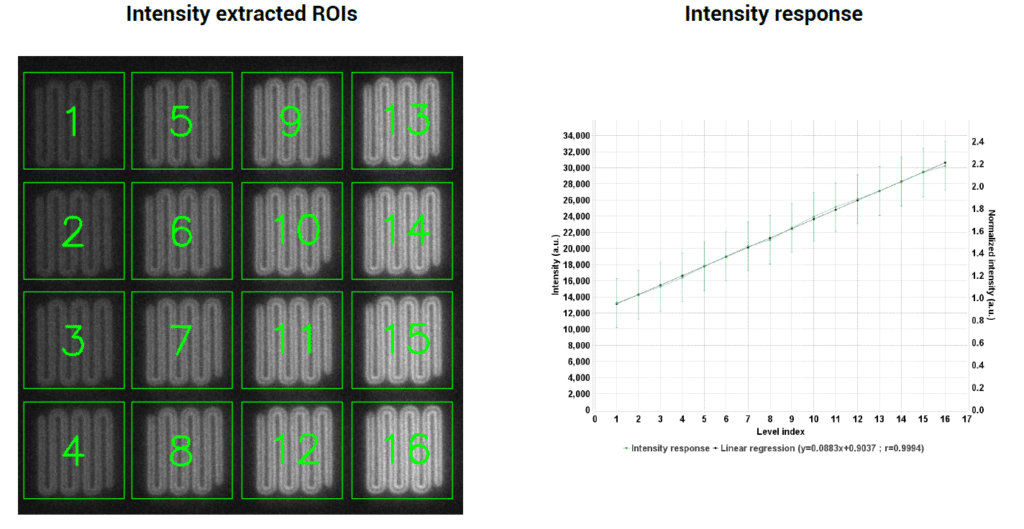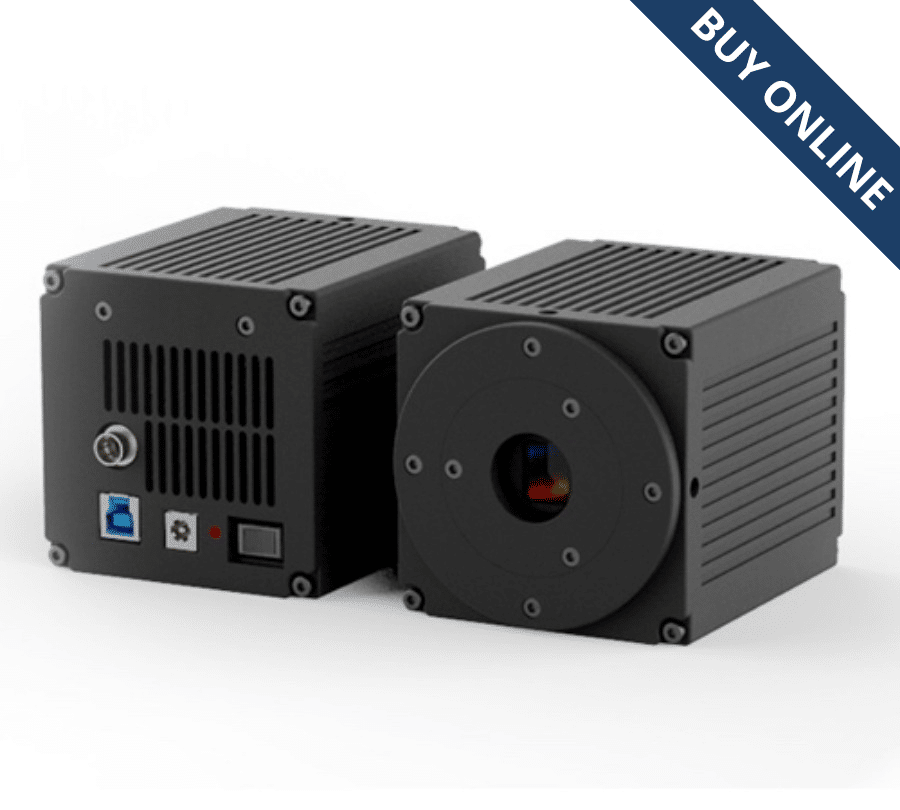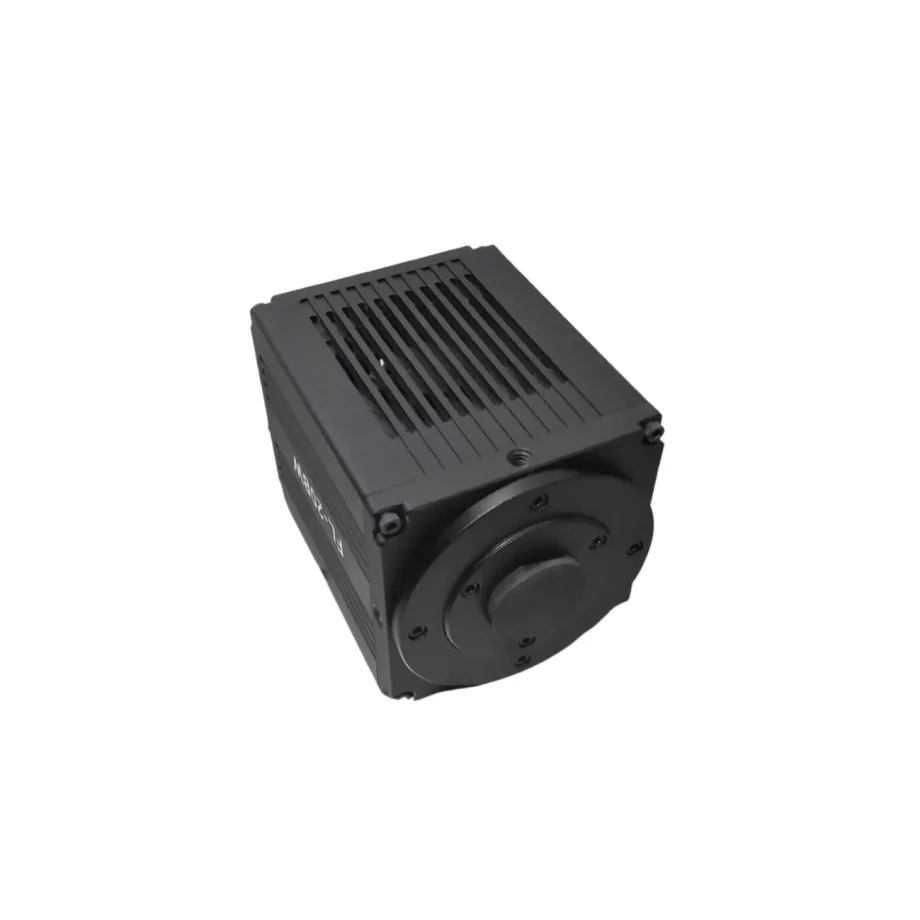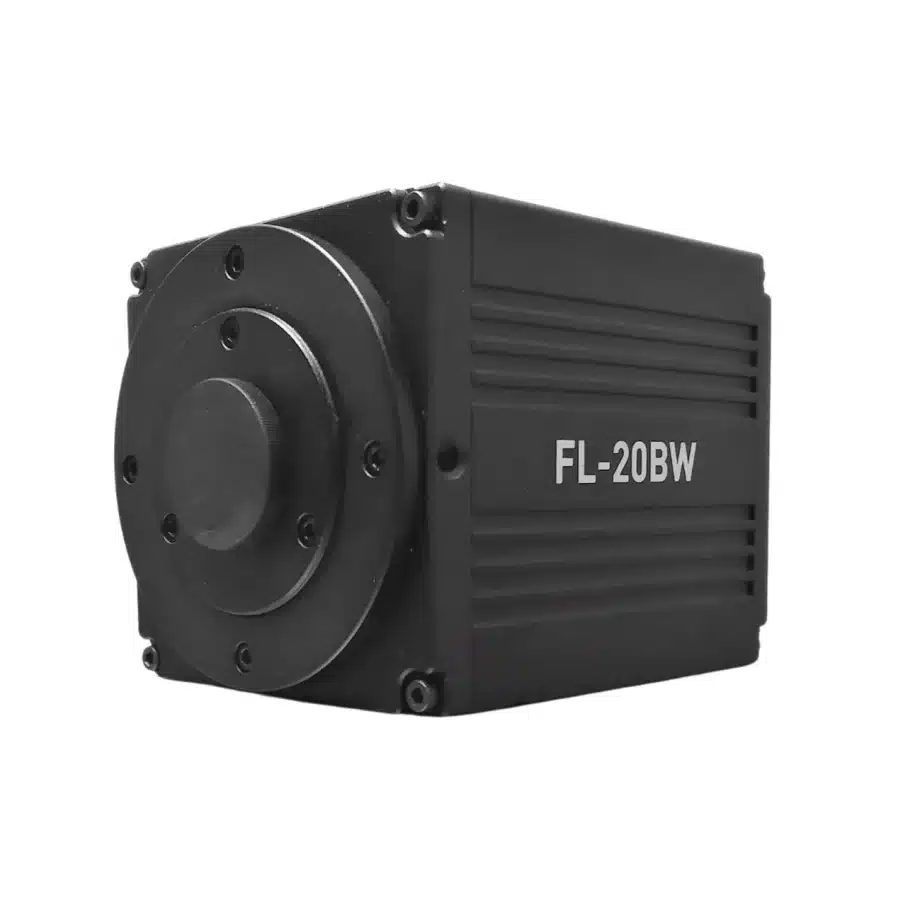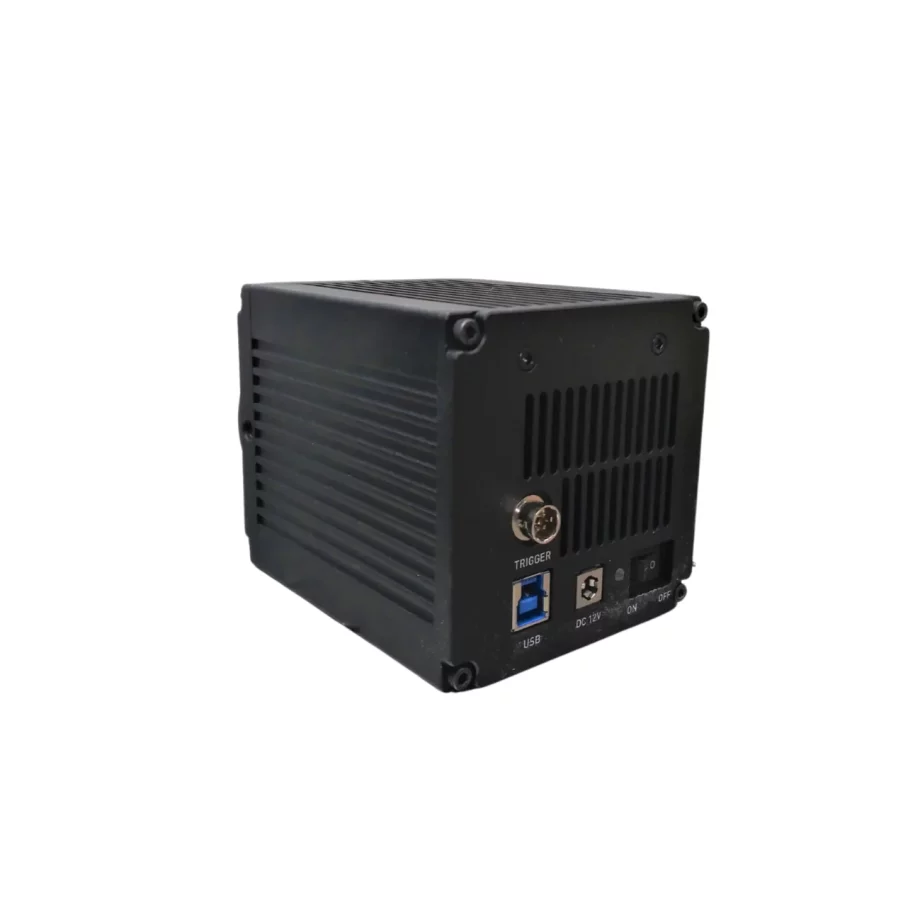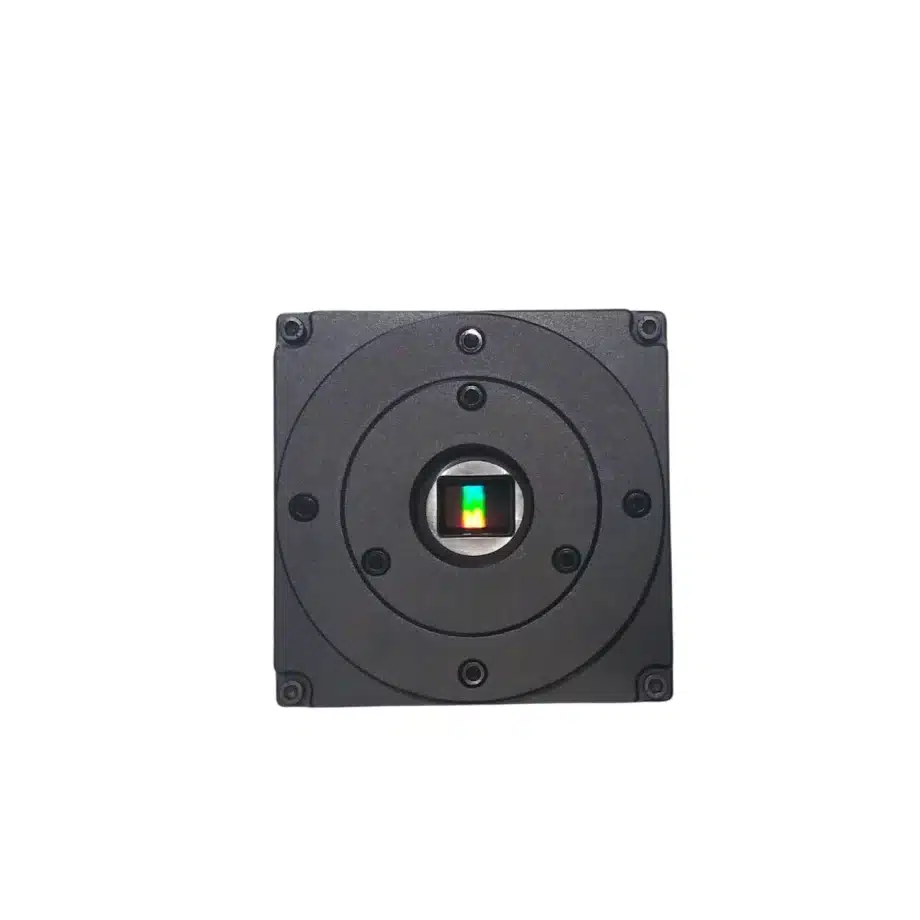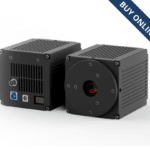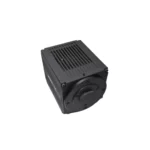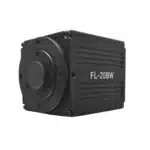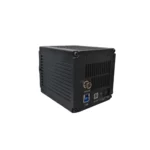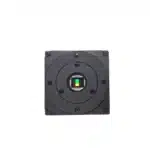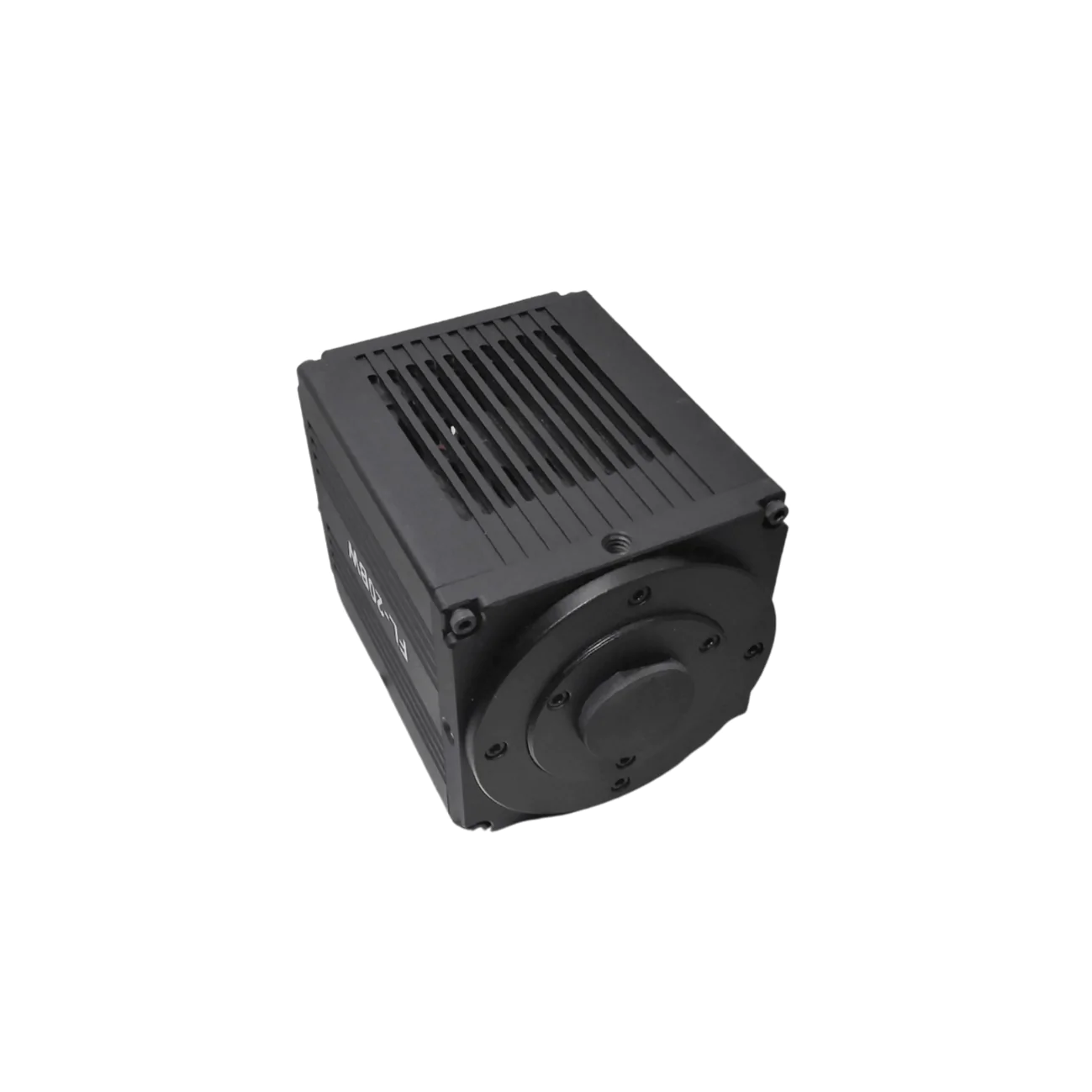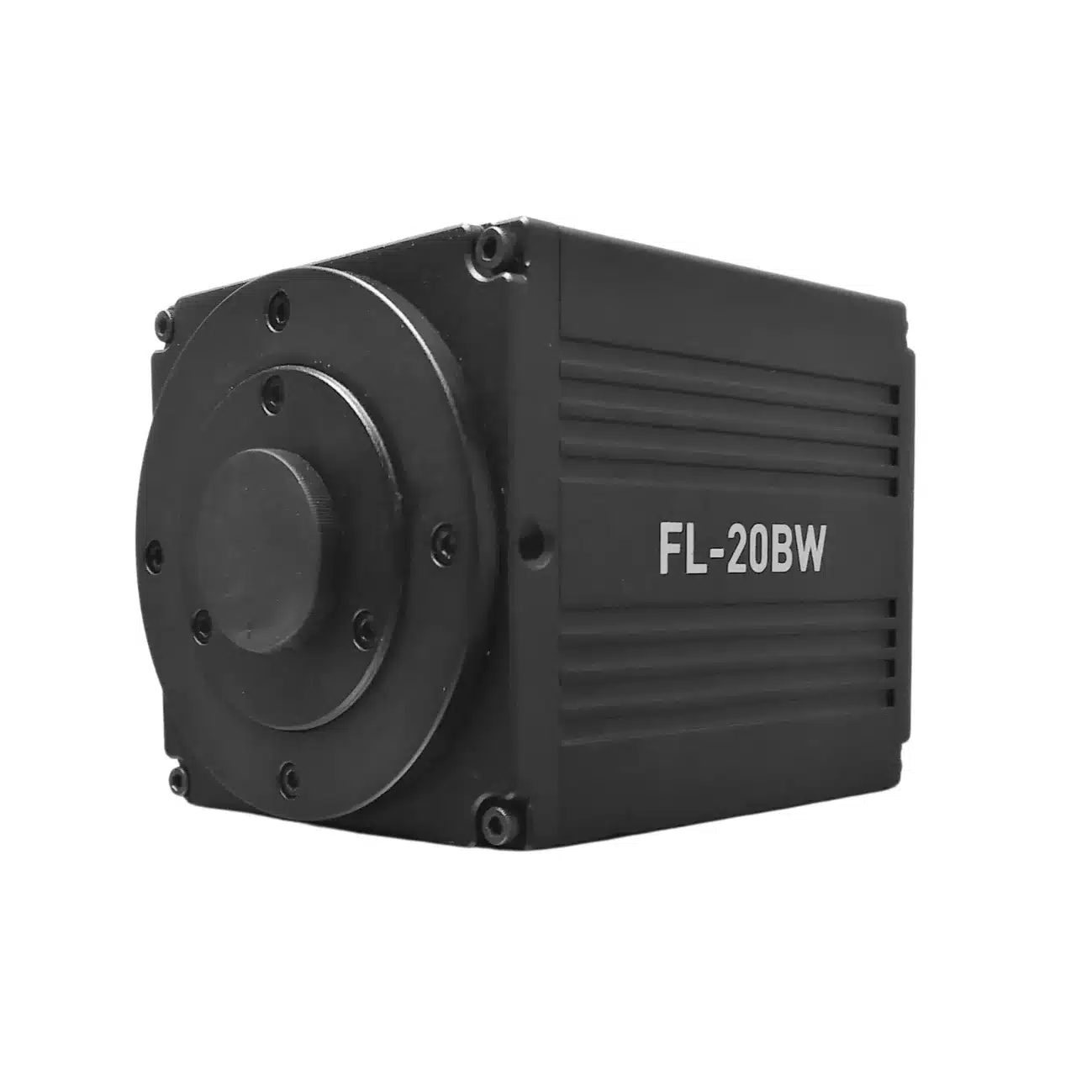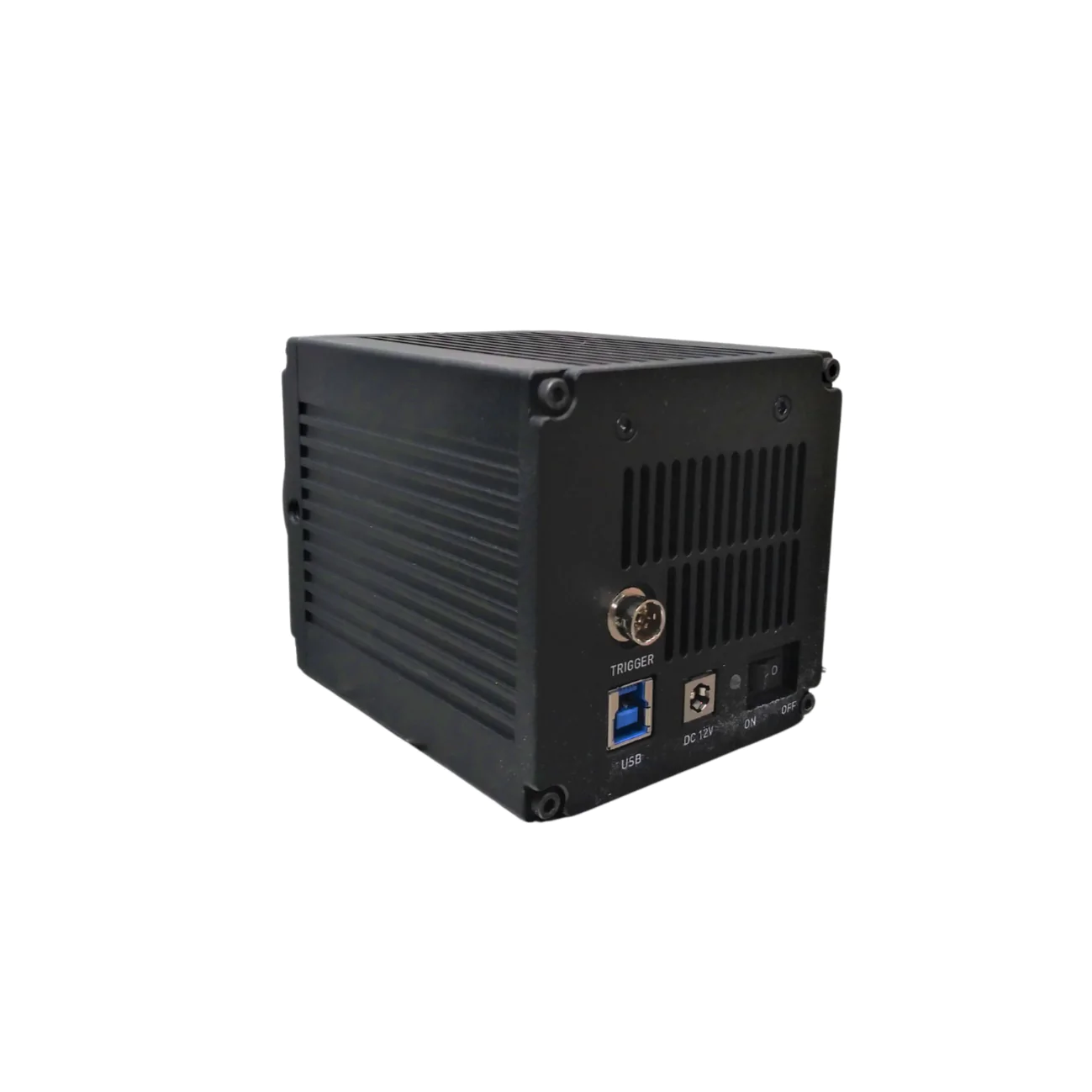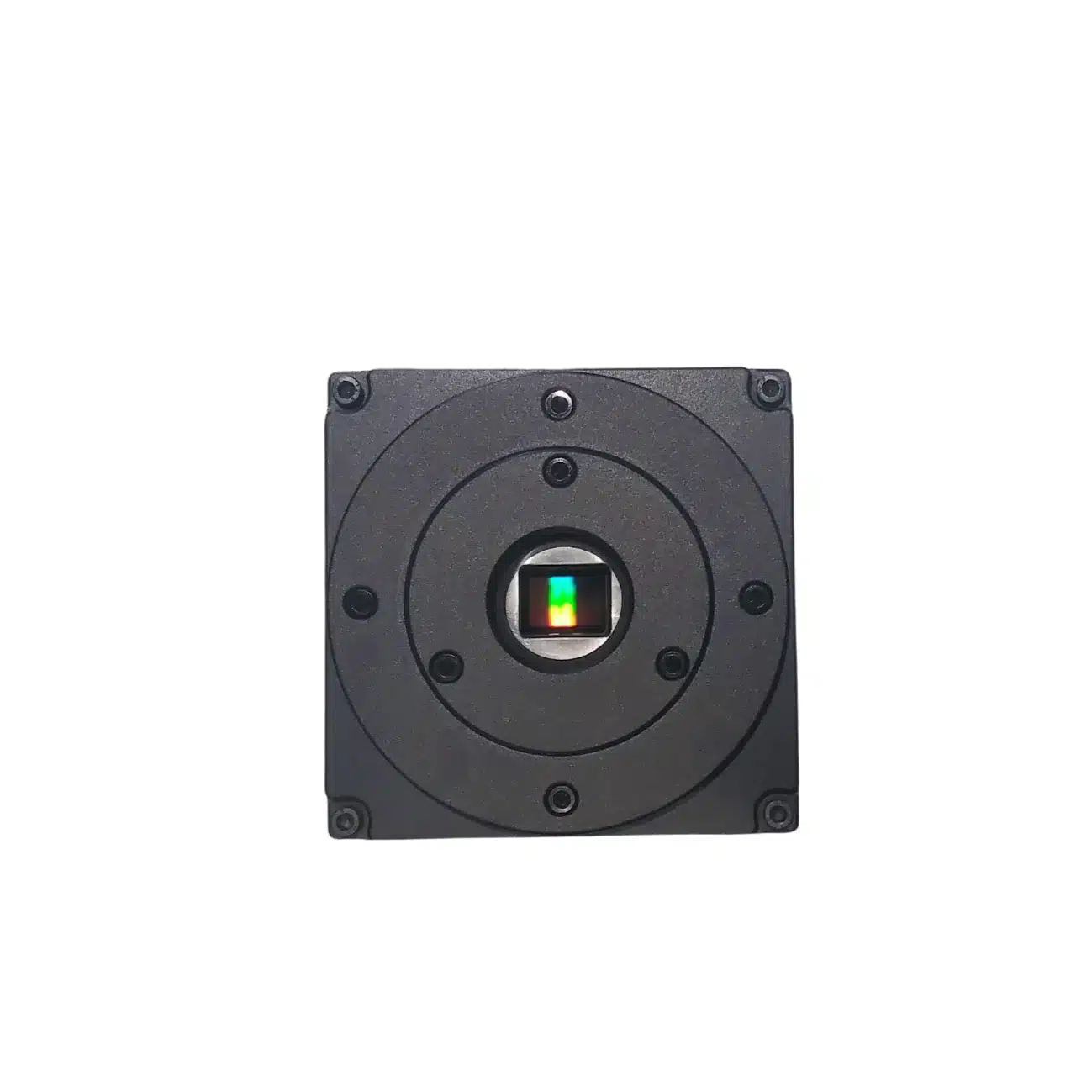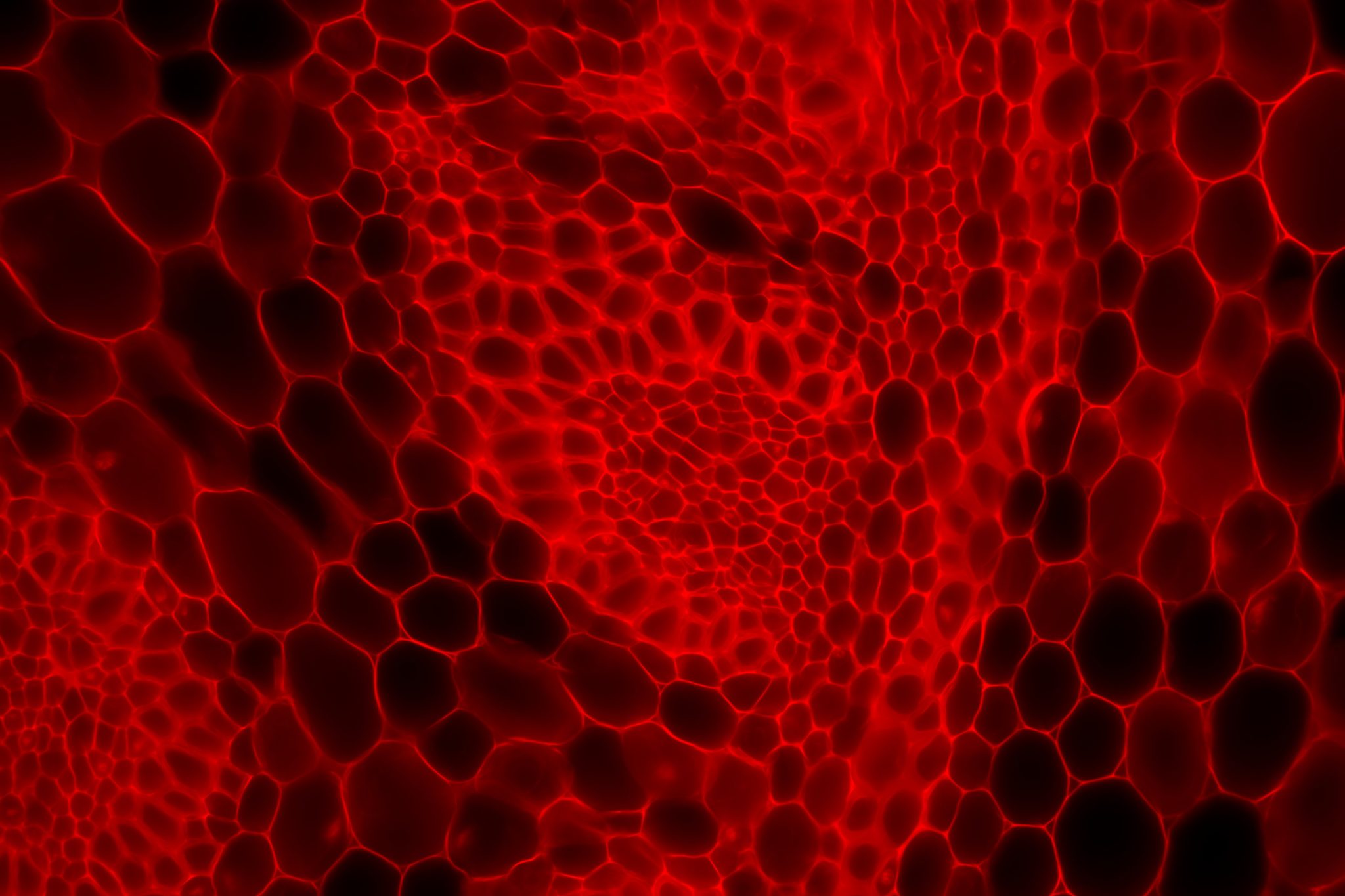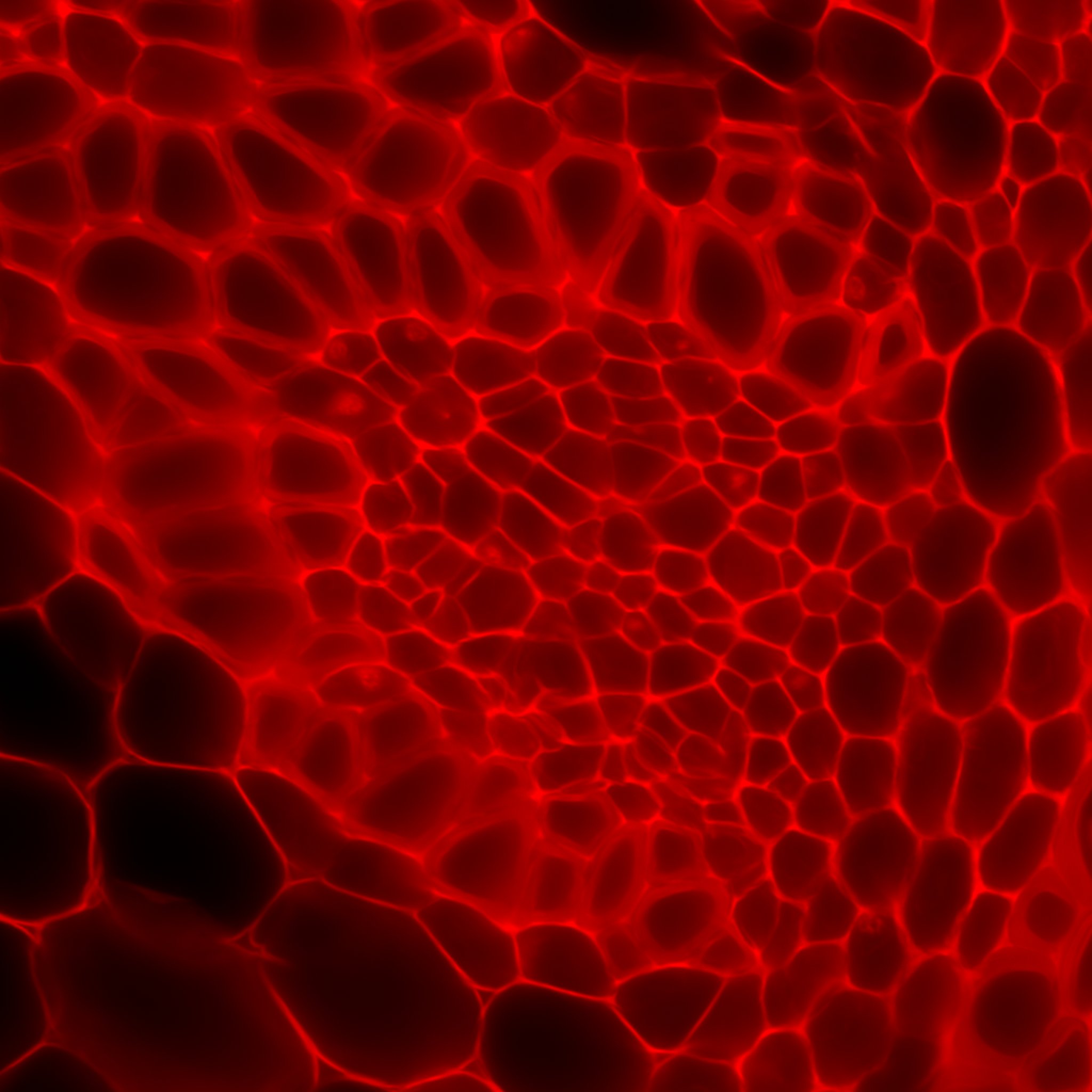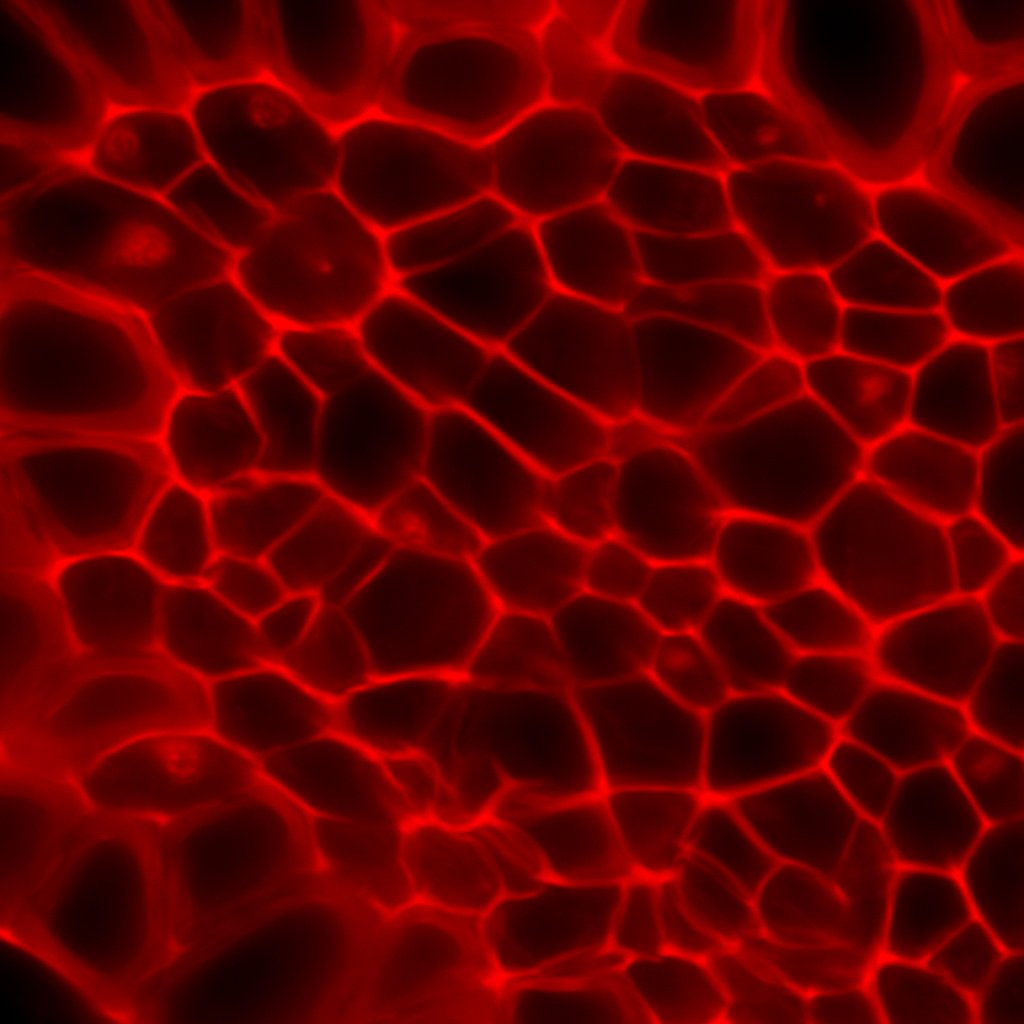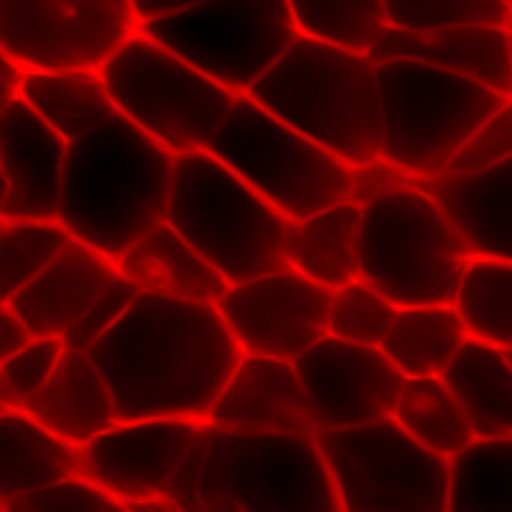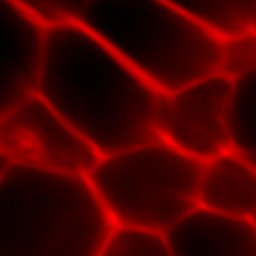FL-20BW Monochrome Camera
20 Megapixels, Capturing High Resolution Images at Once
The 1-inch image sensor on the FL-20 low noise cmos Tucsen camera provides optimal coverage for high-quality imaging within the field of view suitable for C-mount lenses. With a resolution of up to 20 megapixels, the sensor ensures that optical resolution is maintained even when capturing images using 4X and 10X microscope objectives.
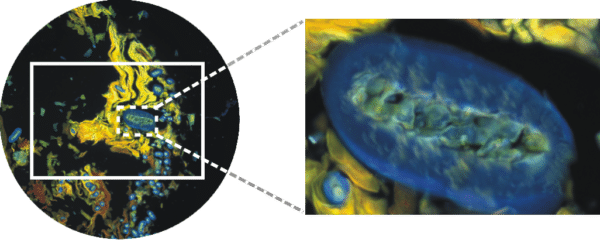
Advanced Cooling Technology Reduces Dark Current Down to 0.001e-/pixel/s
Utilizing Tucsen’s advanced cooling technology from sCMOS cameras, the FL-20BW camera model achieves a low dark current level as low as 0.001 electrons per pixel per second. This feature notably diminishes hot pixel noise, particularly beneficial for long exposure durations.
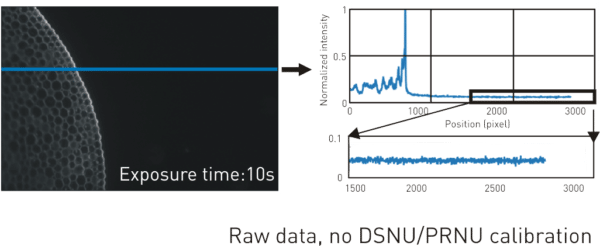
High SNR, Balanced with Exposure Time
Quantum efficiency and noise are directly linked to signal and noise. A higher ratio between them typically yields a superior signal-to-noise ratio. The FL-20BW excels in this regard, boasting an impressive quantum efficiency of 84% while prioritizing noise control. With read noise reduced to 0.6 electrons and dark current minimized to 0.001 electrons per second, the FL-20BW emerges as the optimal choice for achieving a high signal-to-noise ratio, effectively balancing exposure time.
Red circle area: Under short-term exposure, sCMOS has the best signal-to- noise ratio due to its high quantum efficiency and low readout noise.
Blue circle area: At the exposure time around above 1 second. The FL- 20BW maintains a better signal-to-noise ratio because of the combined advantages of low readout noise and dark current noise, while the SNR of sCMOS drops rapidly, because of the high dark current noise.
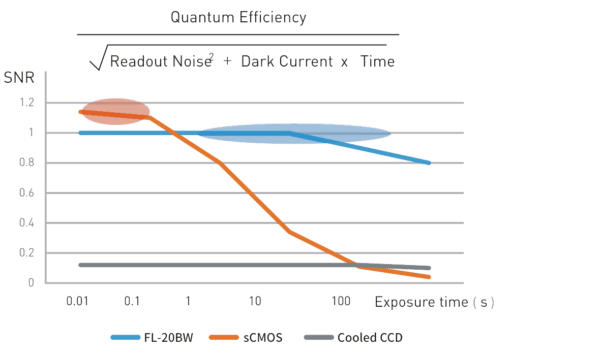
FL-20BW: The Most Comprehensive Performance
Over the past decade, CCD technology has gradually receded from the scientific imaging arena. In its place, sCMOS has emerged as the frontrunner in advanced scientific imaging due to its superior speed and lower noise. However, despite these advancements, sCMOS still comes with challenges such as high dark current noise and high cost. Consequently, in applications demanding prolonged exposure times and cost-effective scientific imaging solutions, users often resort to aging CCD cameras.
But now, the innovative FL-20 camera achieves comparable dark current noise levels and cost efficiency akin to traditional CCD cameras while harnessing the best traits of CMOS technology, such as lower readout noise and enhanced speed. The FL-20BW offers a comprehensive blend of features, positioning it as a standout choice for scientific imaging applications requiring optimal performance across various parameters.

CCD
Cooled CCD cameras suffer from several disadvantages that have led to their decreasing popularity. Primarily, they exhibit low speed, typically offering only 10-20 frames per second (fps), making them unsuitable for high frame rate applications. Additionally, these cameras often have high readout noise, typically ranging between 5-10 electrons, resulting in a lower signal-to-noise ratio (SNR) in low-light imaging scenarios. Moreover, the discontinuation of their production exacerbates their obsolescence; with the suspension of image sensor production, there has been a lack of innovation and the introduction of new products in this technology segment, further limiting their appeal and usage in favor of more modern imaging technologies.
sCMOS
sCMOS cameras are prone to high dark current noise, with cooled sCMOS cameras experiencing levels only slightly less than 1 electron per second. This results in a rapid drop in signal-to-noise ratio with prolonged exposure times. Additionally, the cost of sCMOS cameras tends to be higher compared to CCD alternatives, making it challenging to entirely replace CCD cameras in various applications.
FL-20BW
The FL-20BW camera is the most balanced option, achieving the same level of CCD camera as dark current noise and price/performance ratio, while offering the lower readout noise and faster speed of a CMOS.

FL-20 Low Noise CMOS Color Camera
The FL-20 ultra-low noise CMOS camera delivers exceptional image quality with its advanced features. Equipped with a 1-inch image sensor, it effectively covers the optimal field of view (FOV) for C-mount applications, ensuring superior image quality. With a resolution of up to 20 megapixels, the camera maintains optical clarity even when imaging with high-magnification microscope objectives such as 4X and 10X, preserving fine details with precision. This combination of features makes the FL-20 an ideal choice for demanding imaging applications where high resolution and low noise are paramount.
Thermoelectric cooling noise reduction technology to meet more professional color fluorescence imaging needs
As with the top-level sCMOS camera technology from Tucsen, the FL-20 cooled camera operates at -15 °C and can ensure long-term reliable operation, significantly reducing the hot pixels caused by the accumulation of dark current, and obtaining a purer fluorescent background image. More than twice the sensitivity of a CCD, to meet the needs of professional fluorescence imaging.
Utilizing top-level sCMOS camera technology, the FL-20 cooled camera by Tucsen operates at -15°C, ensuring long-term reliable performance. This cooling capability substantially reduces the occurrence of hot pixels caused by dark current accumulation, resulting in cleaner fluorescent background images. With over twice the sensitivity of CCD cameras, the FL-20 meets the rigorous demands of professional fluorescence imaging.
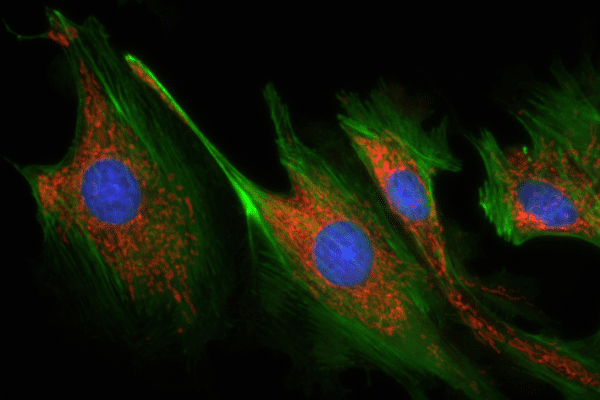
Real-time intelligent image processing, focused on improving image quality
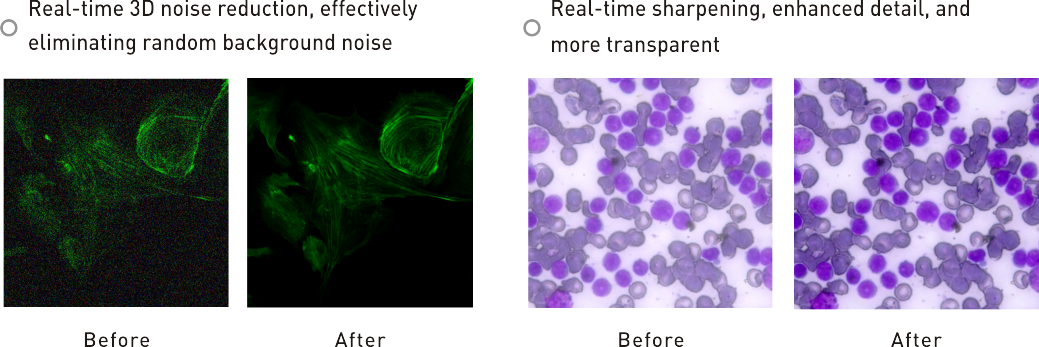
50 fps high speed video

Manufacturer’s website: http://www.tucsen.com/products/FL-20BW.html
For more high performance CMOS & CCD Cameras: https://www.axiomoptics.com/scientific-industrial-cameras/#low-light-cameras
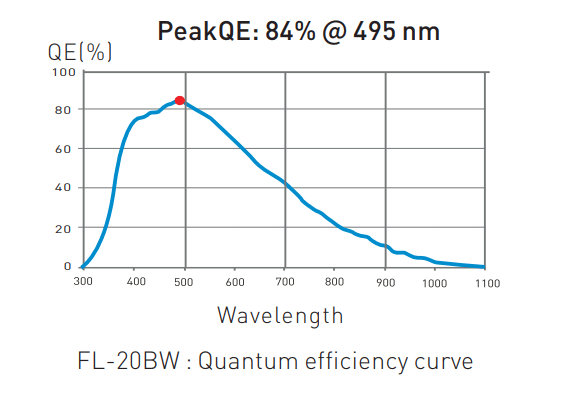
FL-20 Applications
- Fluorescence Imaging
- Microscopy
- Bioluminescence
- Astronomy
- PCR/qPCR
- Gel imaging/chemiluminiscence
- Applications requiring low readout noise and long exposure times
FL-20BW Tucsen Camera Monochrome Camera Brochure
FL-20Color Tucsen Camera Brochure
Mosaic 2.1 Software
FL-20BW supports Tucsen’s standard SDK development kit, Microsoft Directshow, Twain video interface, and Mosaic 2.1 software. Mosaic 2.1 software is a large imaging software developed by Tucsen to support all of Tucsen’s products. It has three modules: camera control, image processing and measurement. It is compatible with Microsoft Windows and Apple Mac OS dual-systems with advanced “real-time stitching” and “real-time EDF” algorithms, and so on.
Mosaic 2.1 Key Features
- Real-time Image Stitching\ EDF \ 3D Noise Reduction
- Micro-imaging-based intelligent automatic exposure
- HDR image synthesis Supports single shot, delayed camera
- Dynamic\static measurement
- Customize measuring gauges, layers, precision
- Implements drawing: points, lines, rectangles, polygons, circles, arcs, angles
- Smart measurement workflow
- User parameter group save and load
- Customize image naming, style, save location
- Intelligent flat field correction based on dynamic calculation
- Real-time fluorescence image synthesis and editing
- Data export as TXT or Excel, report generation and printing
Argolight intensity pattern imaged with FL-20BW camera 200 ms exposure.
